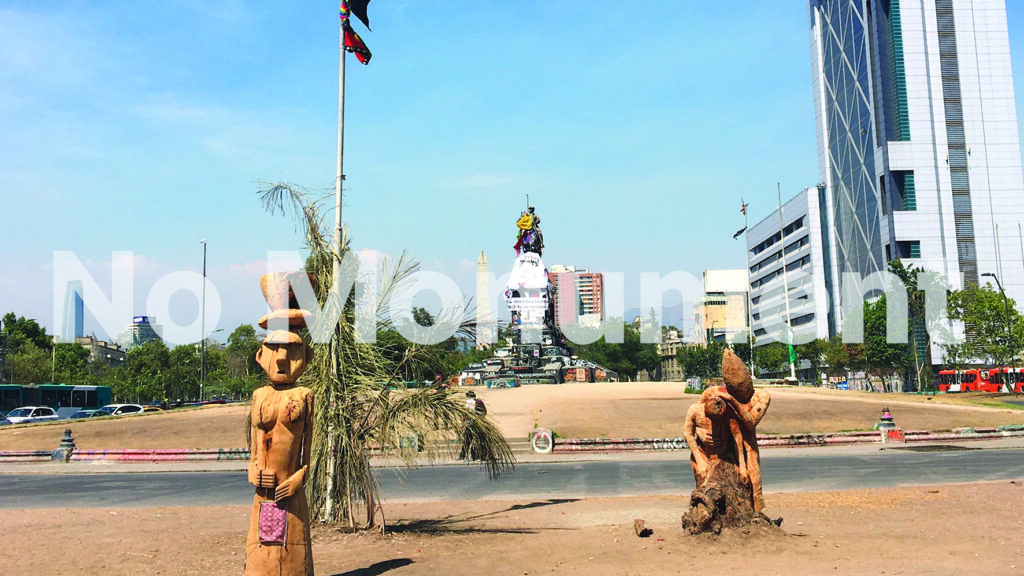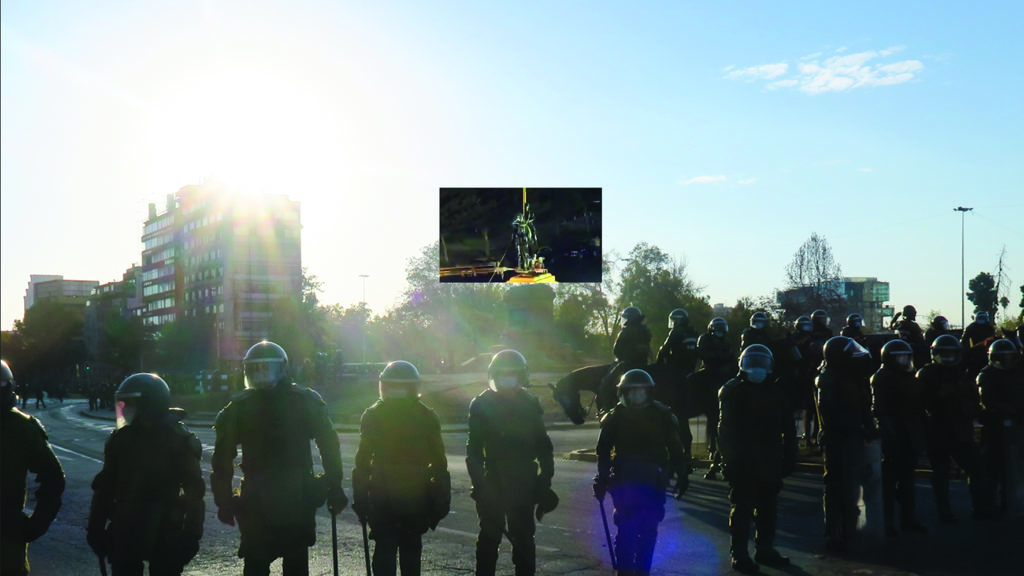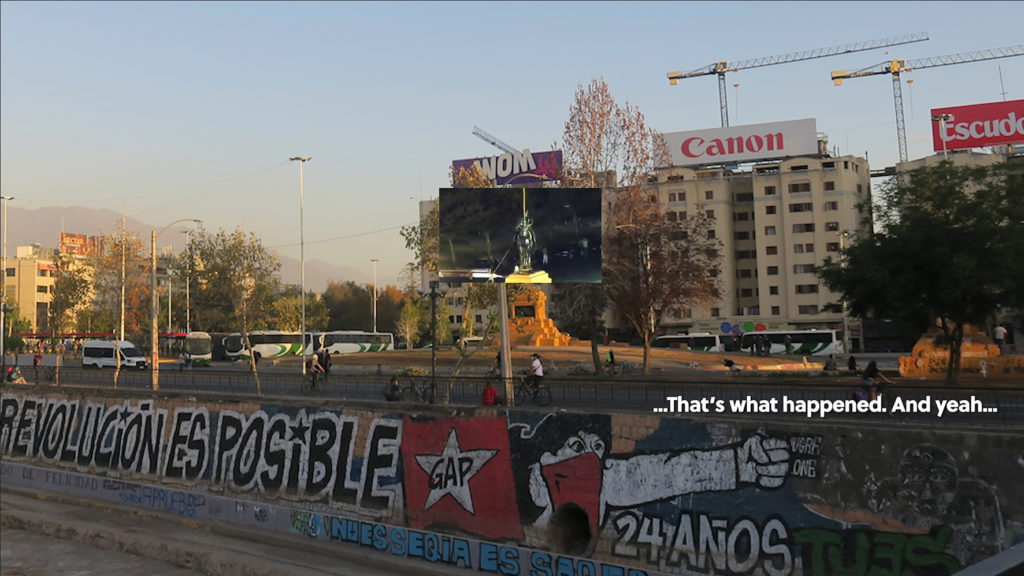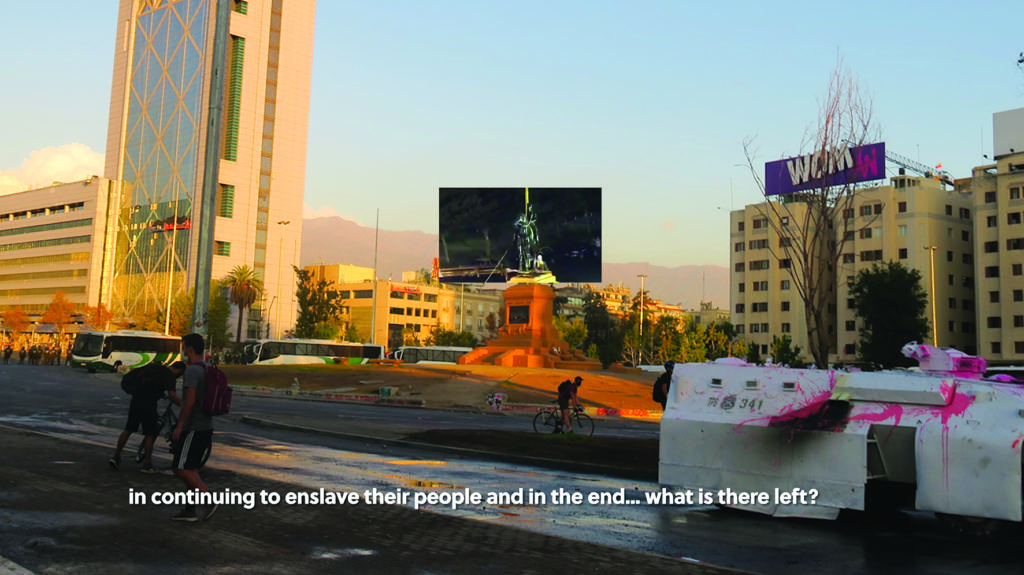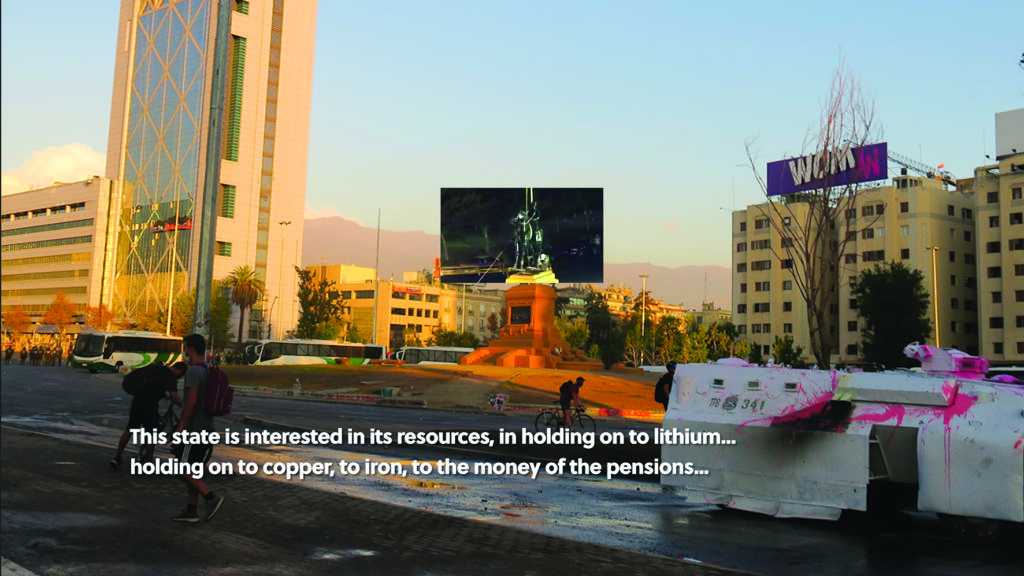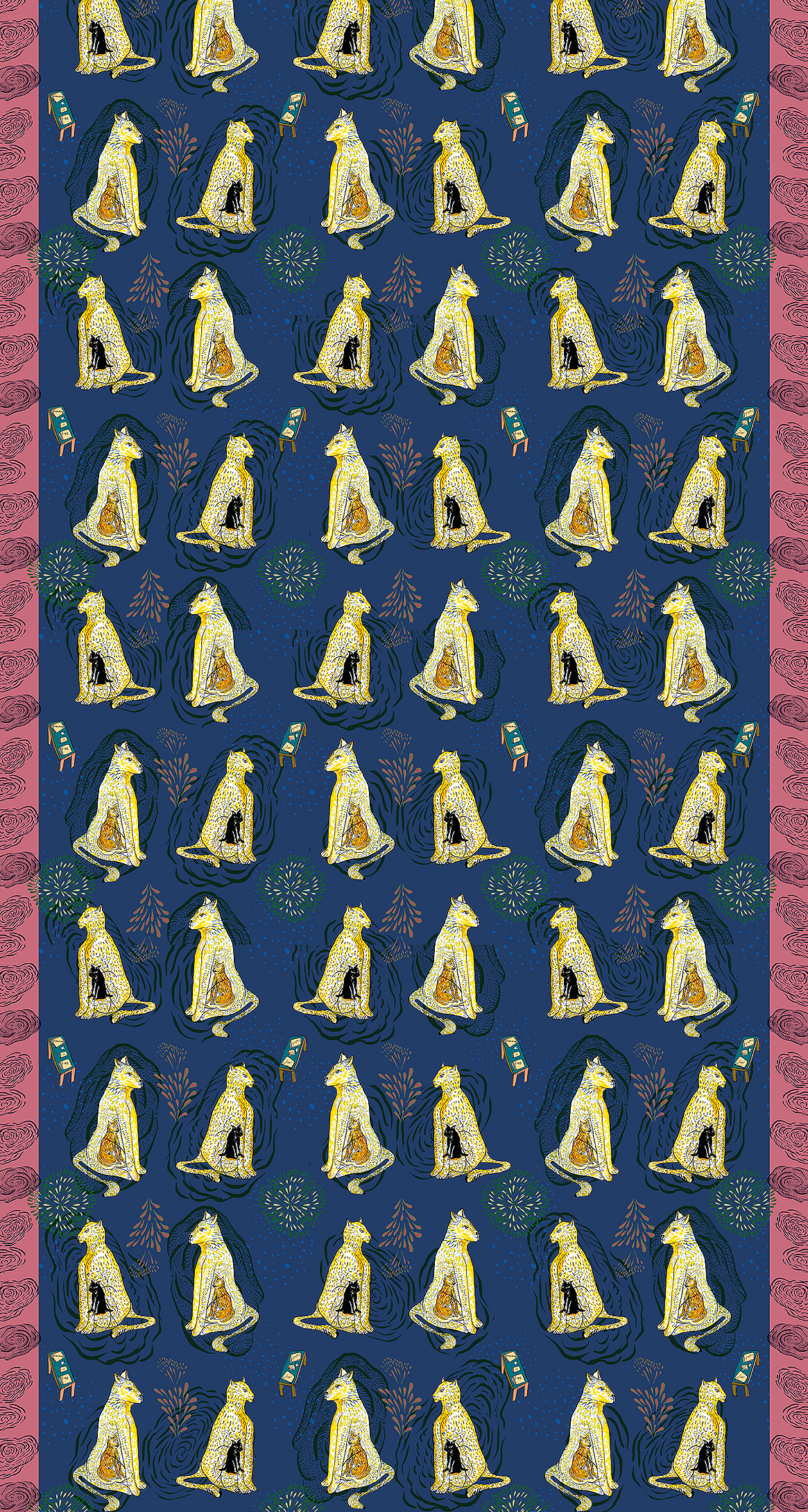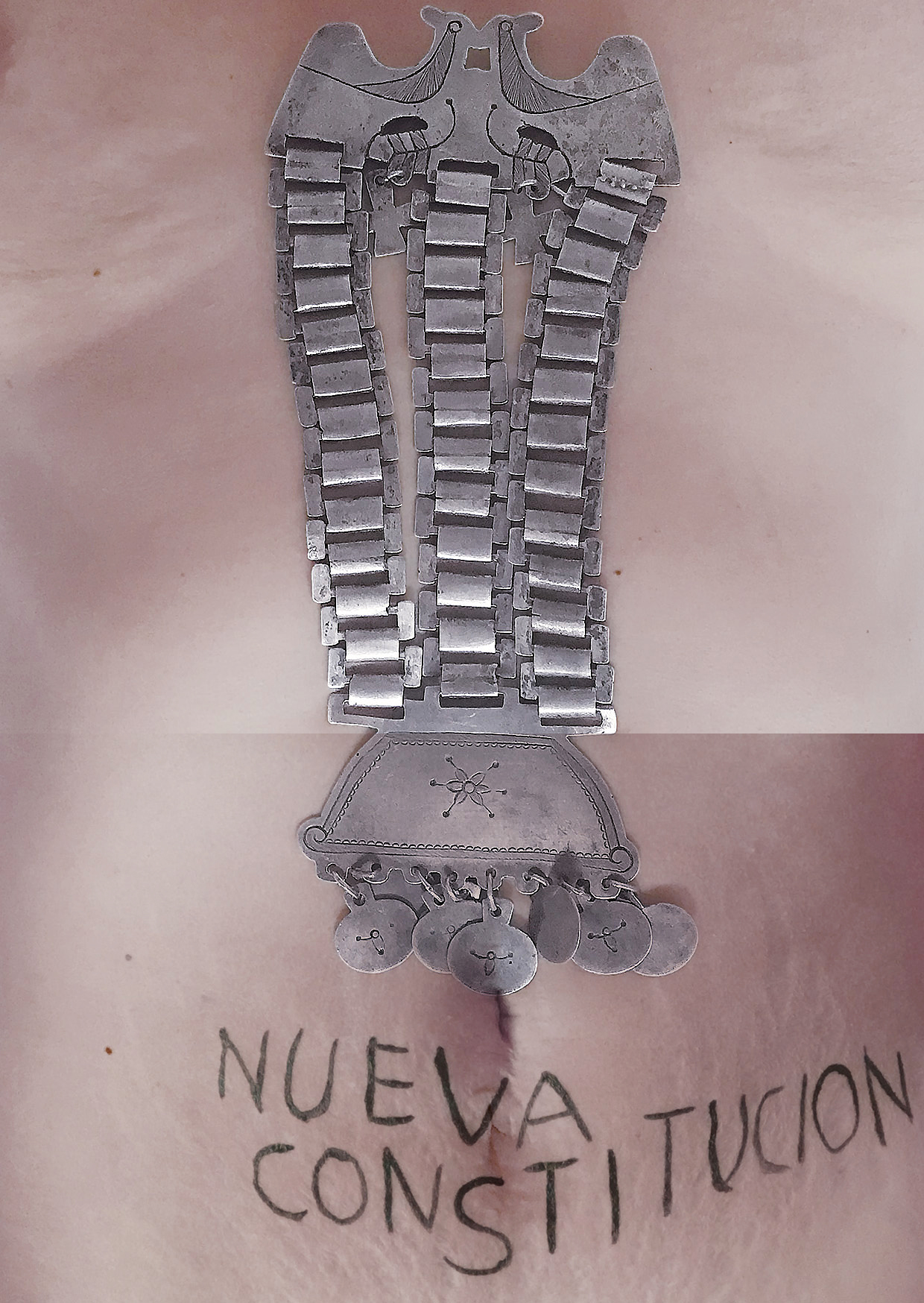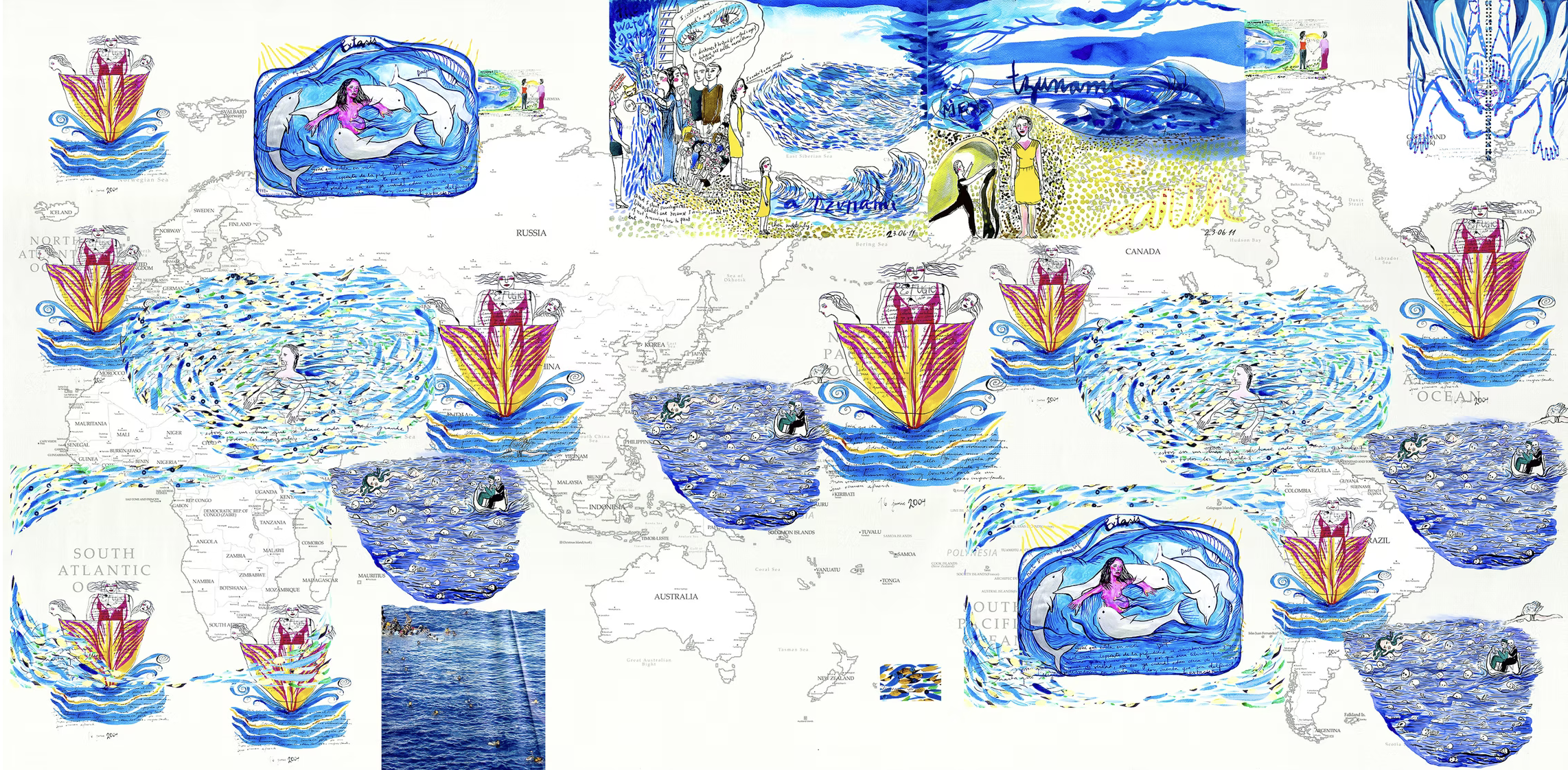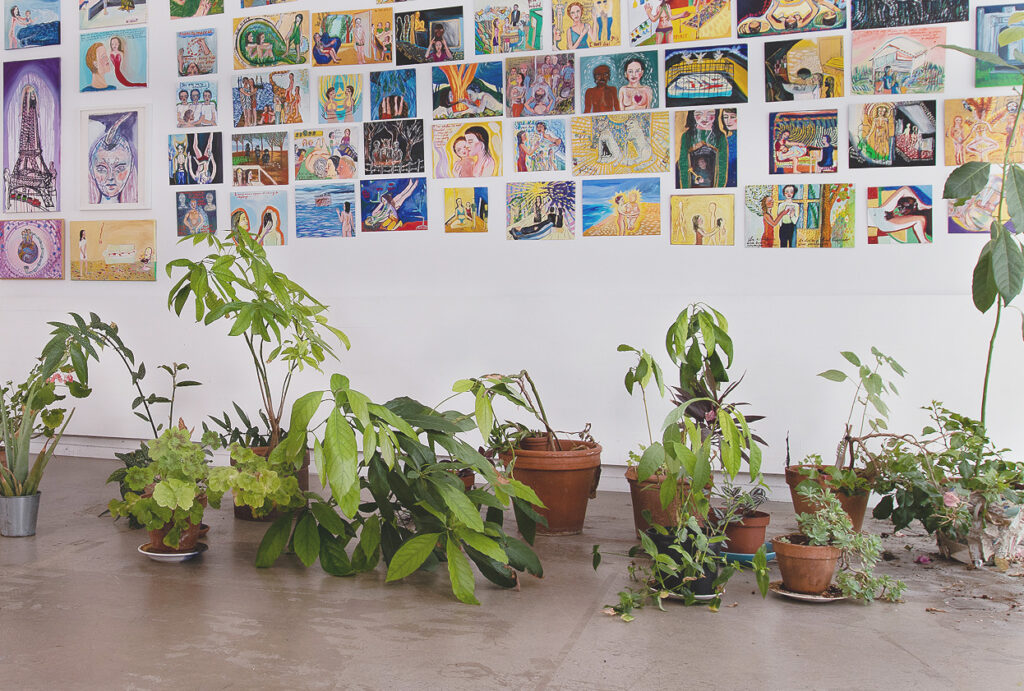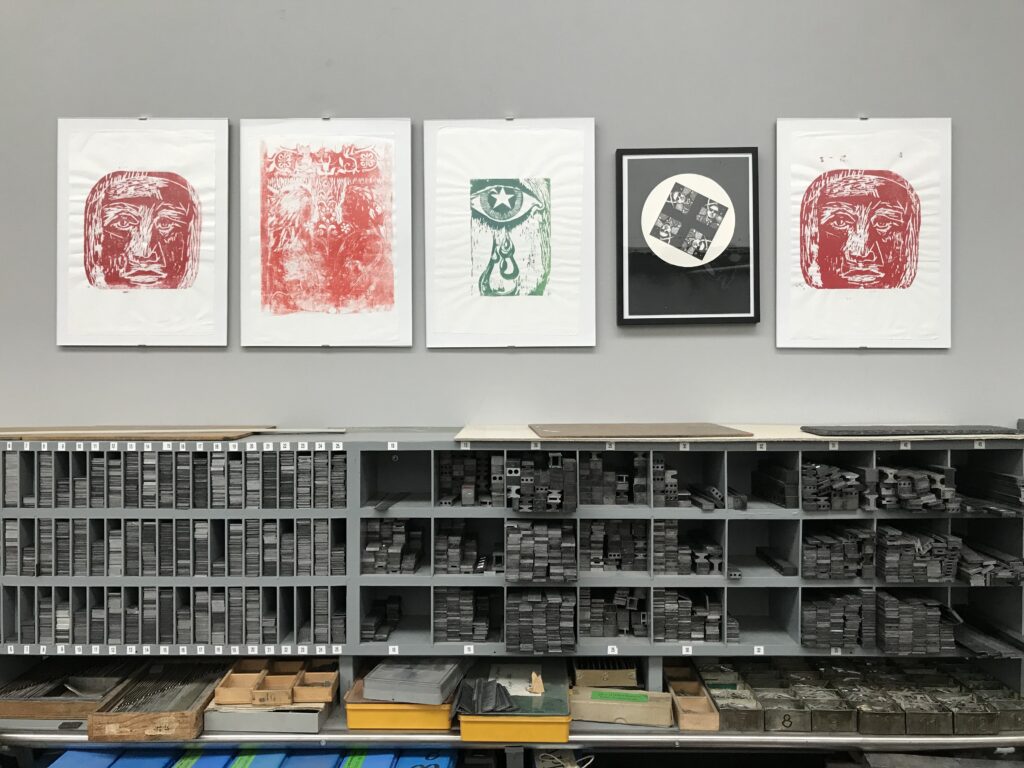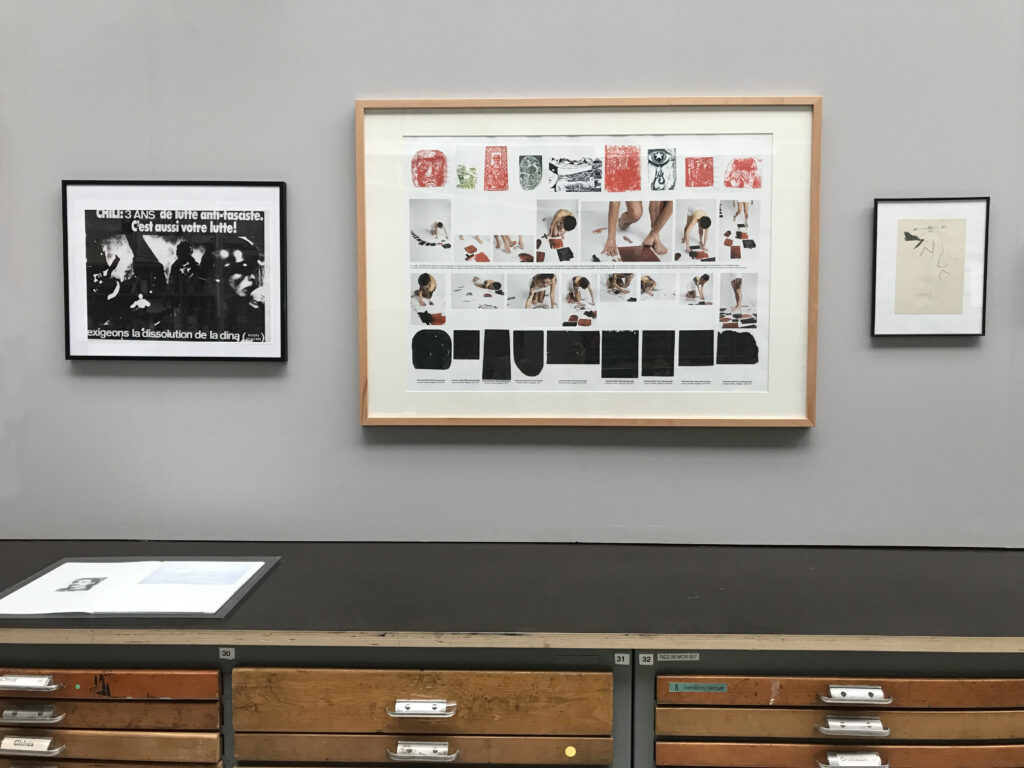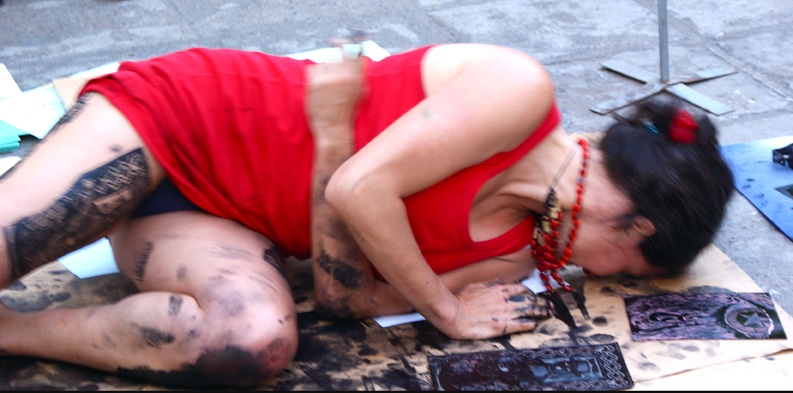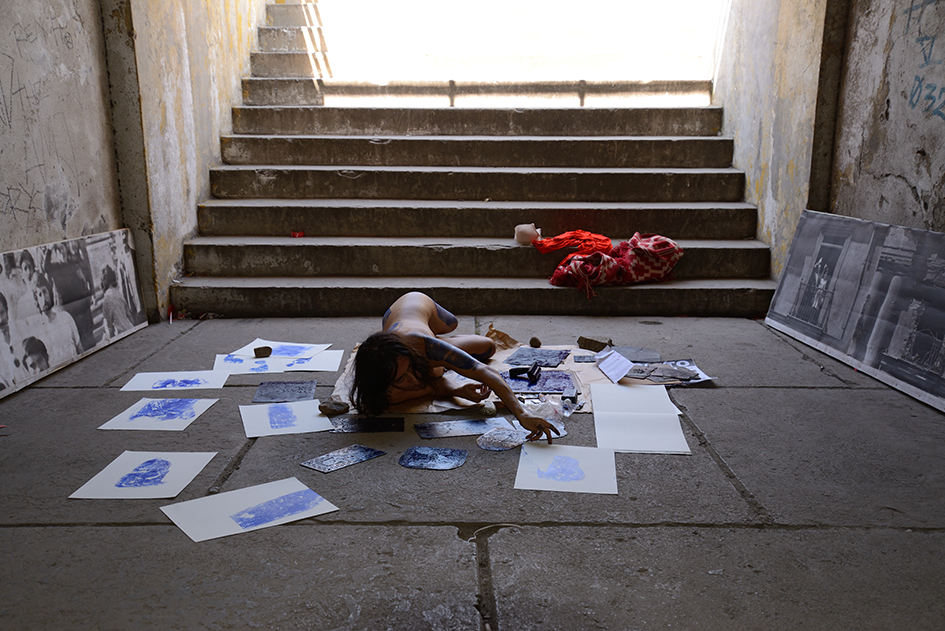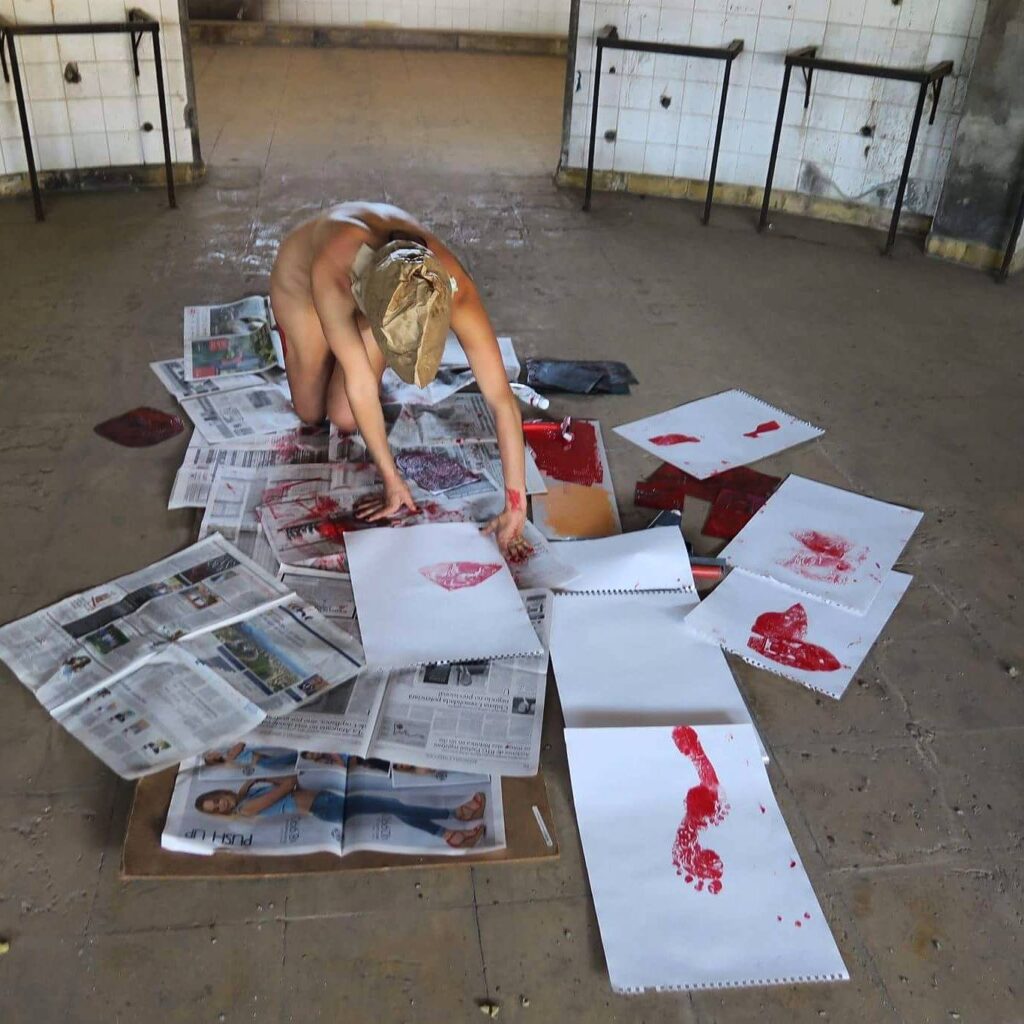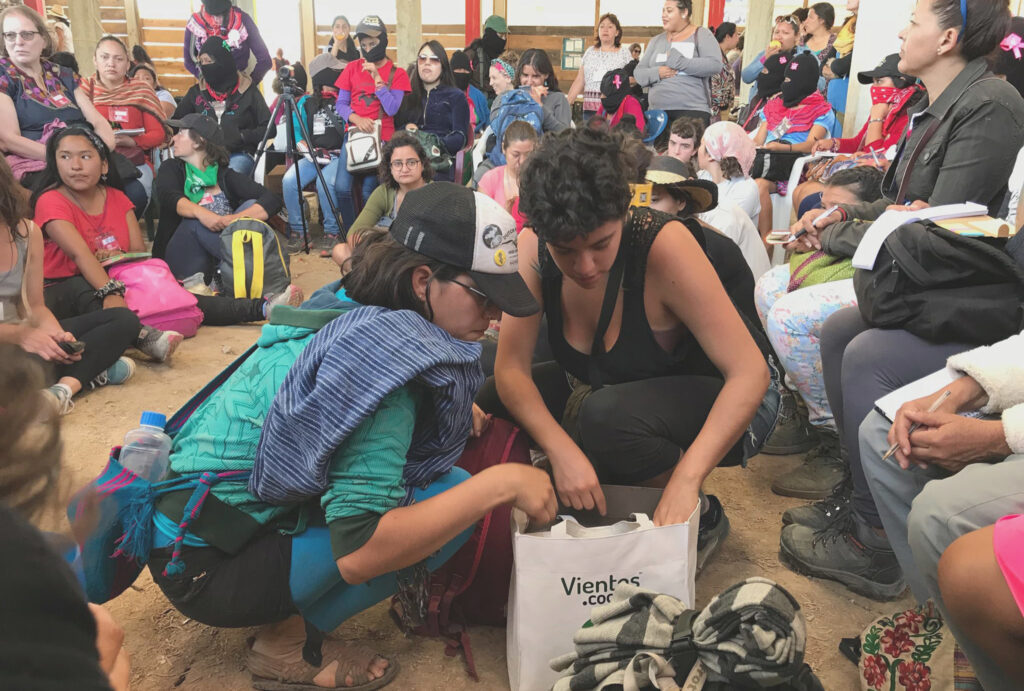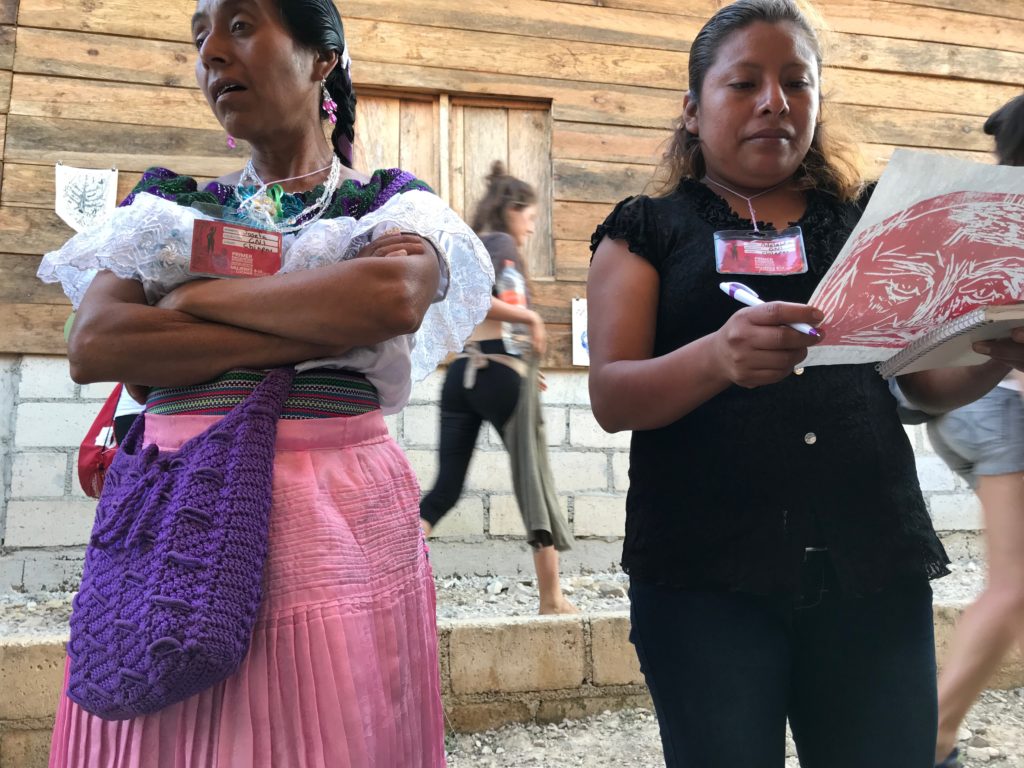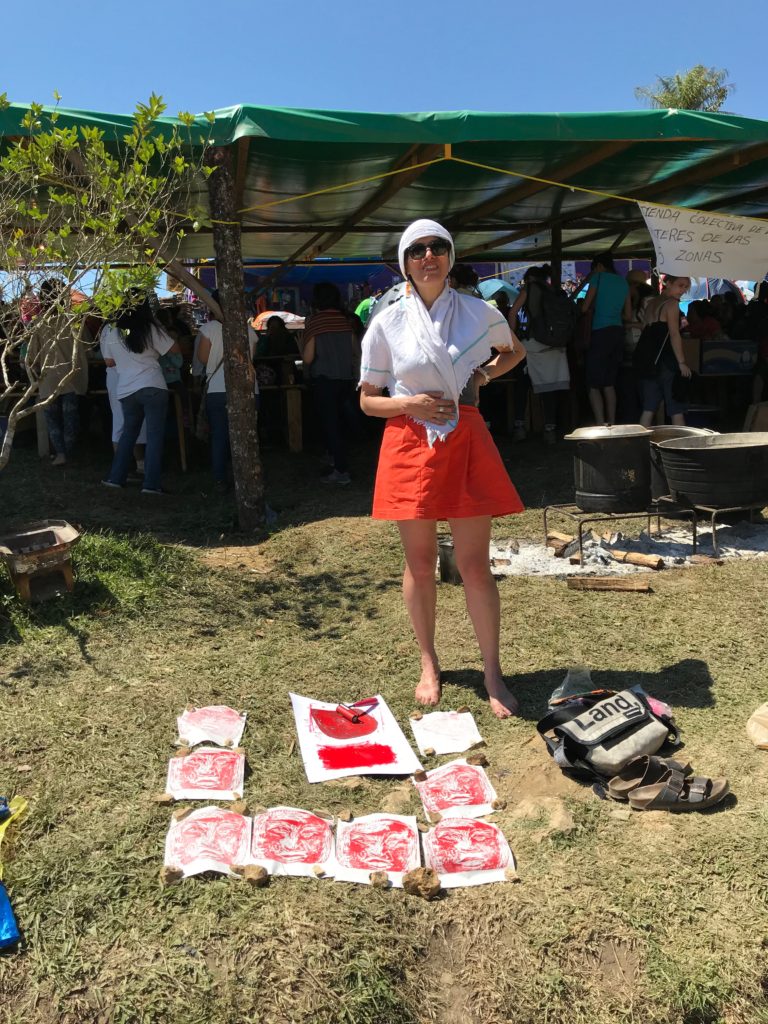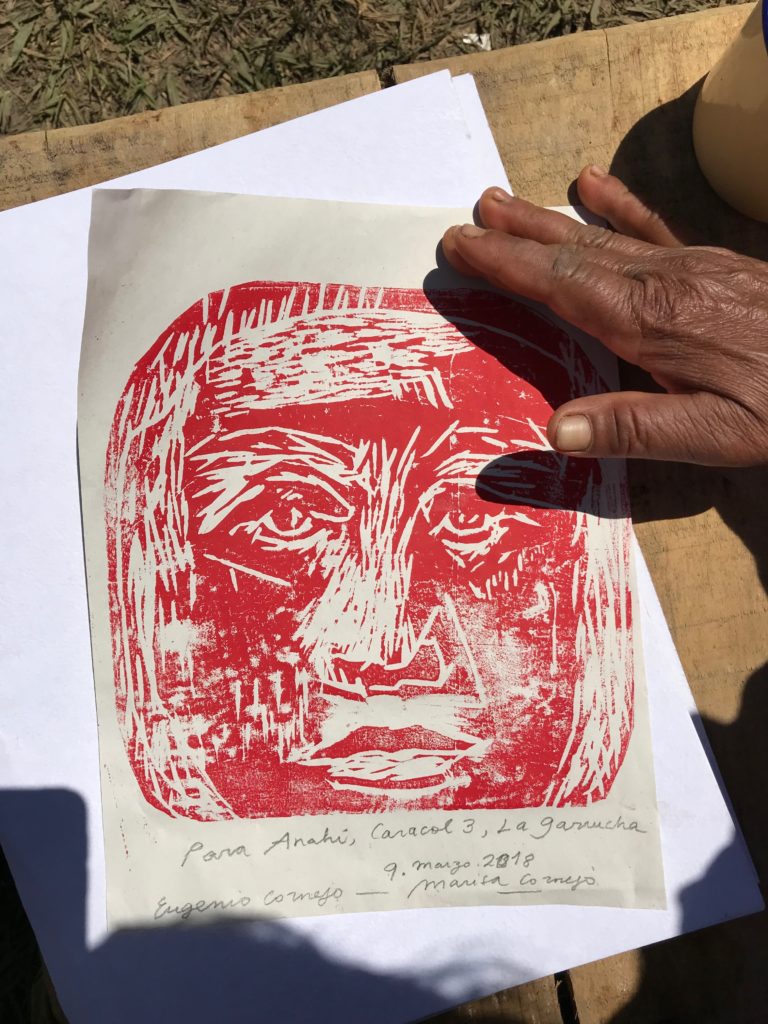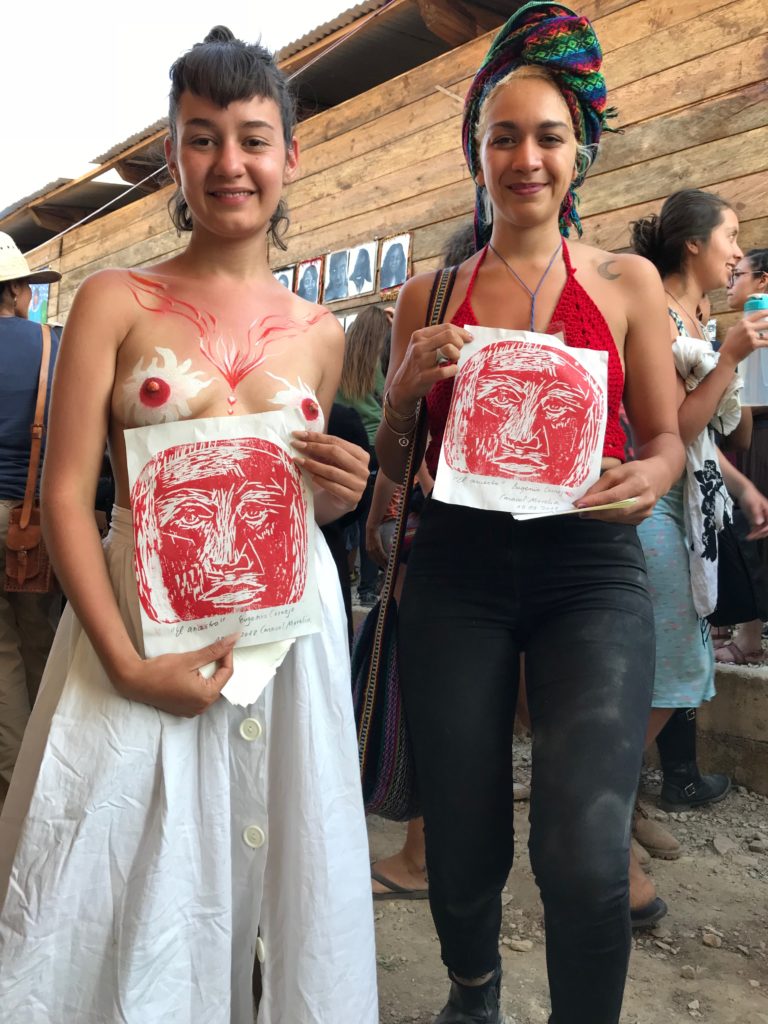Size: 16:9, ultra HD
Lenght: 5:21
Images / sound: Marisa Cornejo
News footage: CNN, 13.03.2021
Fixer: Joaquin Figueroa
Editing: Stefan Fretz
Many thanks to: Gene Ray, Anna Papaeti, Joaquin Figueroa, Maximo Corvalán Pincheira, Mireia Sallarès, Nora Gatica Krug, Katya Kasterine, Ana Maya Kasterine, Miguel D. Norambuena
Plaza Italia, now Plaza de la Dignidad, is since October 18, 2019
the epicenter of a social outbreak in Santiago de Chile.
In the early hours of Friday, March 13, 2021, the statue on the center of the square was withdrawn.
These images were filmed a few hours later as protesters returned to Plaza de la Dignidad, risking serious damage to their health and physical integrity by tear gas and other police measures.
Diplômée en 2014 du CCC, l’artiste et activiste Marisa Cornejo a réalisé un film qui revient sur les événements de Plaza Italia à Santiago, renommée Plaza de la Dignidad depuis le 18 octobre 2019. Pendant plusieurs semaines, des manifestant·e·s s’y sont rassemblés face à la répression policière pour réclamer une meilleure justice sociale et l’abrogation de la Constitution héritée du régime d’Augusto Pinochet. La statue du général Baquedano qui trônait au centre de la place a été retirée par le gouvernement le 13 mars 2021 après les déprédations intervenues sur ce symbole des divisions chiliennes. Héros militaire pour certain·e·s, génocidaire de populations indigènes pour d’autres, Baquedano s’en est allé au milieu de la nuit, par la petite porte. Cornejo s’est associée à sa fille Katya Kasterine et à Cecilia Moya Rivera (étudiante du CCC) pour adosser le film à un essai à plusieurs voix, un journal de bord de la contestation – publié en anglais et en espagnol. Ensemble elles retissent la mémoire d’un pays traversé par de multiples conflits, espérances, violences et inégalités, dont la présence absente de la statue du général devient le leitmotiv.
